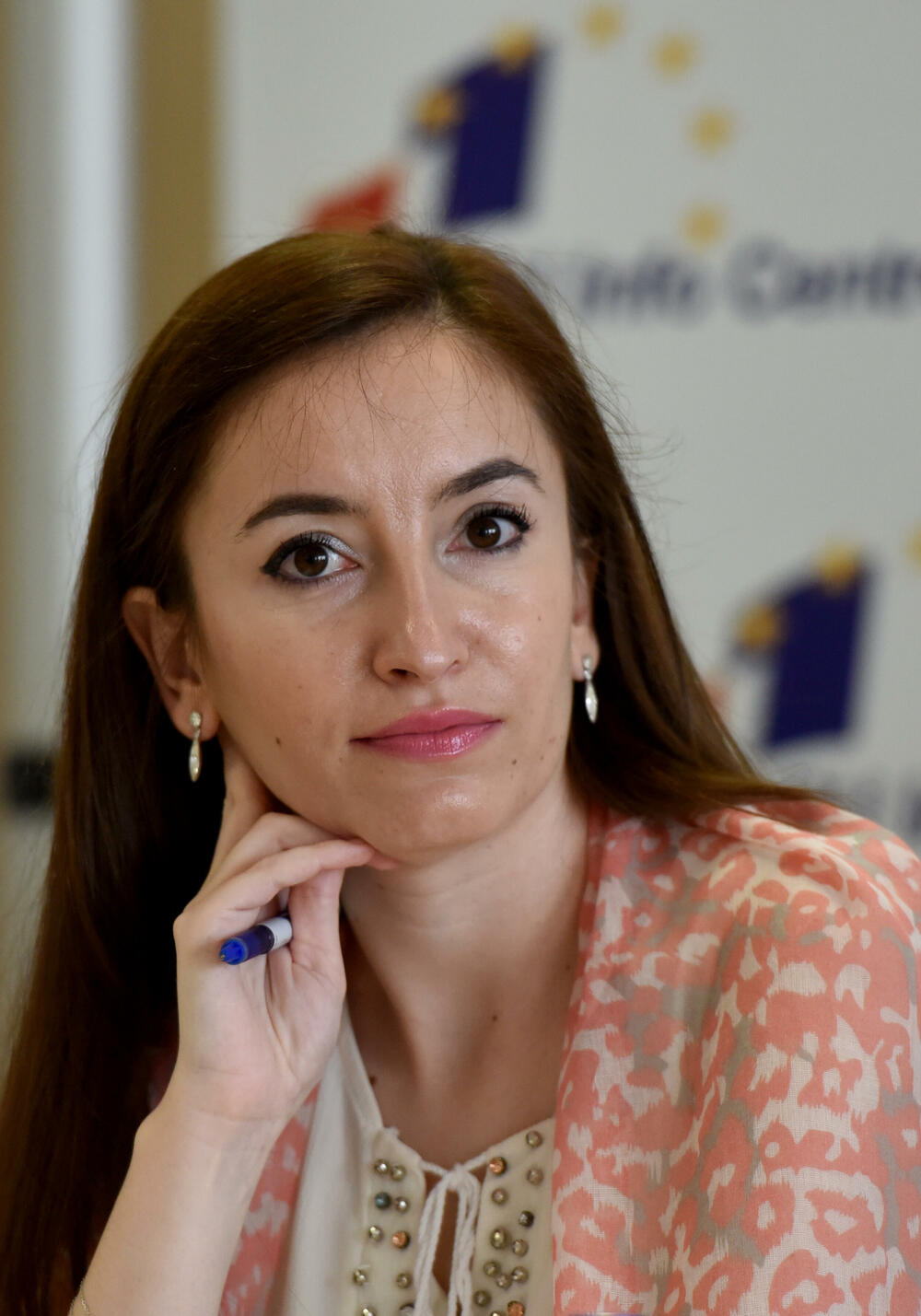The fact that Freedom House, almost four years after the fall of the three-decade rule of the Democratic Party of Socialists (DPS), still classifies Montenegro in the group of "hybrid regimes", is a sign that the new authorities are not freeing the captured institutions, but are continuing in the footsteps of the DPS.
With these words, the interlocutors of "Vijesti" comment on the key findings of the Freedom House report "Countries in Transition 2024", according to which Montenegro is in the group of countries in which, according to that American non-governmental organization (NGO), institutions are fragile and in which there are serious challenges for protection political rights and civil liberties.
Montenegro has been in the category of hybrid regimes since 2019, and until then it was in the group of "semi-consolidated democracies" for several years.
In the key findings of the report, presented on Thursday, it was stated that Montenegro is among the "cyclical hybrids" - states in which there is a combination of "real political pluralism and superficial institutional change". That is, in countries that go from autocracy to democracy and back. There are also Albania, Bosnia and Herzegovina (BiH), North Macedonia and Armenia.
Among other things, the findings stated that the country is still recovering from the constitutional crisis of 2022, when the Constitutional Court did not have a quorum to work, and that it is struggling "with dysfunctional and corrupt local authorities, in the absence of state stability."
Fridom House expert for the Balkans Aleksandra Karpi, told "Voice of America" that many Montenegrin municipalities faced difficulties in holding elections or a peaceful transition of power, largely because, according to her, there were no national authorities to control it.
"... And the consequence is that institutions decay over time and do not function as they should for citizens, or are increasingly susceptible to being captured by certain politicians," she assessed.
On a scale of one to seven (highest and lowest level of progress), Montenegro received a "democracy rating" of 3,75, which is the worst result of the country in the last decade. Last year, that rating was 3,79, and the year before last it was 3,82. In the report published in 2015, Montenegro had a rating of 4,11.
Alert alarm
Civic activist Dina Bajramspahić assesses that the findings of the Freedom House report are "an alarm for the alarm". He says that it has been accurately diagnosed that Montenegro is a country in which the government "juggles democratic and undemocratic practices", that all three branches of government are dysfunctional and that there is no attempt to depoliticize the captured institutions, "but only to change their uniforms and actively work for the other." politics".
"The appearance of changes has not fooled anyone and there is an obvious lack of structural reforms that should transform the way management and decisions are made. However, there is less and less hope that anyone in our society is interested in this. Time has shown that the number of those who really seek and want democracy, the rule of law and respect for human rights is quite low. The rest are just waiting for a chance to satisfy their personal interests and are completely ready to 'turn their heads to the other side' and go over all social anomalies if they are in favor of 'theirs'", said Bajramspahić to "Vijesta".

Noting that (in terms of democracy rating) Freedom House's report is the worst in the last ten years, a program associate at the Center for Civic Education (CGO) Nikola Obradović he says that with the change of government, Montenegro got new political actors, and that all the bad practices from the DPS period not only remained, but that in many ways they are "more widespread, more pronounced and more dangerous for the overall democratic development of society".
He states that it is not enough to say only that the predecessors were bad, but that it is necessary to offer "a different, more advanced and more promising approach".
"But without populism, nationalism and similar mechanisms that are incendiary, that have the potential to attract voters at some point, but actually continue to destroy the system," Obradović told "Vijesti".
The old guard and the younger class
In the key findings of the report, it is written that the defeat of the DPS ended almost 30 years of one-party rule in Montenegro, "potentially opening a new chapter of democracy." The transition, it is stated, continued in 2023 when he is the former leader of the DPS Milo Đukanović defeated in the presidential election. However, it was pointed out that "the political landscape remains divided between the "old guard" that ruled before 2020 and the "younger class of less experienced officials".
"The schism produced inefficient governance, inter-institutional conflict and a year-long constitutional crisis - all of which undermined rule of law reforms and enabled the spread of organized crime. Recent conflicts within the new leadership, as evidenced by the resignation of the president Jakov Milatović from the membership of the ruling party (Movement Evropa Sad) in February 2024, could further complicate the reform process," the report's findings state.
Freedom House ranks countries based on several indicators - national democratic governance, electoral process, civil society, independent media, local government, judicial framework and corruption.
The findings also stated that the rating of local administrations fell due to "politicization and poor functionality" of numerous municipalities. It says that the challenges in the past year were the obstruction of elections and sessions of local assemblies, the lack of a peaceful change of government and unstable finances.
This alludes to the situation in Šavnik, Andrijevica and Budva. In Šavnik, the elections have been going on for almost a year and a half, but they have not yet ended because the members of the electoral committees from the opposition coalition "For the Future of Šavnik", led by the former Democratic Front, do not allow part of the newly registered voters to vote because, they claim, they were rewritten to support the DPS.
In Andrijevica, forced administration was recently introduced, because the local parliament failed, among other things, to remove the first man of the municipality Željko Ćulafić, because a group of citizens repeatedly broke into the assembly hall when it was supposed to be in session.
When it comes to Budva, that municipality was managed by its president from prison for almost a year Milo Bozovic, who is charged by the Special State Prosecutor's Office with creating a criminal organization and drug smuggling.
Partitocracy and clientelism
Bajramspahić says that the government was and remains "an instrument for satisfying private and party appetites", while the satisfaction of the public interest is "incidental". According to her, the only difference compared to the period before 2020 is that then power was centralized and key decisions were made at the top of one party, while today "there are countless petty powerful people at the state and local level, who make public resources private 'ban' and implement personal arbitrariness, without responsibility, explanation, foundation, accounting".
"To make matters worse, the ruling parties have a tacit agreement not to interfere with each other and to tolerate countless controversial practices in order to preserve power. Party pluralism exists in Montenegro, but it does not fulfill its purpose of offering alternatives and encouraging quality and competition, because all parties are unique in their partitocratic and clientelistic practices. The aforementioned leaves a toll on the quality of management of institutions", adds the interlocutor.
Nikola Obradović says that in many examples at the local level, one can see the weakness of institutions, and the excessive power of those political actors who, according to him, have full protection from the leaders at the national level. He therefore asks if anyone really believes that the leaders of Nikšić and Pljevlja Marko Kovacevic i Dario Vranes they do not raise the bar of national tensions every time without the blessing of the party leadership.

"Does anyone believe that the election process in Šavnik has become another serious obstacle not only on the way to the democratization of the state, but also on its way to the EU just by the will of some local actors? Of course, we all know that these are concerted actions, that in many cases what is to be implemented at the national level is practiced at the local level, and that is precisely why Montenegro recorded a special decline in this category this year," he states.
Findings from the Freedom House report were kept silent by the majority of parliamentary parties. One of the few who spoke out is the leader of the ruling Democratic People's Party Milan Knezevic, who said that he agreed with the evaluations from the document, and that it was obvious that "there was no complete dismantling of the assets and heritage of the DPS".
The current prime minister Milojko Spajic he said he thought the ratings of Freedom House did not relate to the current state of the country.
The report of Fridom House for Montenegro, which should be published in its entirety soon, they wrote Milena Muk i Marko Sosic from the Institute of Alternatives. The report of the American NGO "Freedom in the World", which was published at the end of February, was prepared by other authors.
Bajramspahić: The government should say how it will lead us out of the "hybrid regime"
Dina Bajramspahić says that the ruling majority not only exploits and abuses power, but also derogates some minor steps from the time of the DPS, such as the control function of the Assembly, the complete implementation of election cycles, non-management of detention institutions and a number of others.
He states that it is a great pity that the society as a whole does not understand that right in front of his eyes are happening "'crooked mergers that will be difficult to correct, which should have been reined in at the start before they gain full momentum".
"The situation is further complicated by the fact that democracy in the region is also galloping backwards and there are fewer and fewer forces ready to resist. In addition, cooperation between non-democratic regimes has been extremely strengthened, which is why their power is getting stronger and the autocracy is consolidating", adds the interlocutor.
The government, says Bajramspahić, must answer precisely what it will do if Montenegro's rating in the Fridom House report exceeds "four" by this time next year and thus the country moves from the group of "hybrid regimes" to the group of "semi-consolidated democracies", and what will make the country transition from a "semi-consolidated" to a "consolidated democracy" in the medium term.
"It is the government's obligation and responsibility. That alone would be a sign that they take the reform task seriously. Otherwise, it is not excluded that next year's grade will be even lower," she says.
Obradović: In the vicious circle of party interests
Nikola Obradović says that many reports are similar to the Fridom House report, with clear road signs, but that it seems that the key problem of Montenegro is on two levels.
"The non-resistance of decision-makers at the highest levels to those influences from the outside that consciously lead us backwards and which we label as malignant influences, and also, equally important, but also connected to the previous one - the focus of political actors on party and particular, and not on the public interest" , he adds.
The interlocutor says that society, as long as there are parties, especially those that have a share in power, will be able to fiercely fight for every seat at all levels, without turning to important issues and creating systemic solutions, including damage to their interests, continue to spin in a vicious circle.
"And there will be more and more parties, but not more democracy, because they diverge only because of some lost position, that is, a chair, or a similar gain or loss, and not because of issues of public importance," concludes Obradović.
Bonus video:




